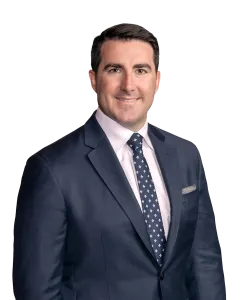Medical Marketer Convicted of $55 Million Fraud Scheme
Headlines that Matter for Companies and Executives in Regulated Industries
Medical Marketer Convicted of $55 Million Fraud Scheme
Late last week, a federal jury in the Northern District of Texas convicted Quintan Cockerell for his role in a $55 million fraud conspiracy involving TRICARE, a federal health insurance program that provides benefits to active duty and retired service members and their families. Other federal health care programs were allegedly involved as well.
Cockerell allegedly worked with others to create and market expensive, compounded (custom-tailored) medications. Instead of custom tailoring the medications to individual patient needs, the local pharmacy involved in the scheme used formulations that maximized TRICARE and other federal health care program reimbursements, regardless of whether those formulations were beneficial for patient need or medical efficacy. Cockerell allegedly received kickbacks for his role in the scheme and recruited other physicians to write prescriptions for these expensive, custom-tailored medications.
The jury convicted Cockerell of one count of conspiracy to defraud the United States, one count of receiving unlawful kickbacks, and one count of money laundering. He faces up to 10 years in prison.
Read the US Department of Justice’s (DOJ) press release here.
Nostrum and CEO Agree to Settle False Claims Act Claims for Up to $50 Million
On October 30, Nostrum Laboratories Inc. and its founder and CEO, Nirmal Mulye, agreed to pay a minimum of $3.825 million and up to $50 million to resolve allegations that they violated the False Claims Act (FCA). Specifically, the government alleged that Nostrum and Mulye knowingly underpaid Medicaid rebates for Nostrum’s drug Nitrofurantoin Oral Suspension (Nitro OS).
Under the Medicaid Drug Rebate Program, drug manufacturers, like Nostrum, are required to pay quarterly rebates to state Medicaid programs in exchange for Medicaid coverage. Manufacturers are also required to pay inflation-based rebates for drugs. As part of the settlement, Nostrum and Mulye admitted that, after modifying and relaunching Nitro OS in August 2018, Nostrum increased the drug’s price from $474.75 to $2,392.32 per bottle, triggering significantly higher Medicaid drug rebate invoices from state Medicaid programs because of the inflation-based rebate.
However, from the fourth quarter of 2018 through the first quarter of 2020, Nostrum and Mulye did not pay these entire invoiced amounts, despite knowing that the larger rebate invoices were in connection with the price increase and inflation-based rebate. Indeed, the Centers for Medicare & Medicaid Services (CMS) notified them that Nostrum should pay the higher calculated amounts. The government alleged that these actions violated the FCA because Nostrum and Mulye knowingly failed to pay the required rebate amounts owed for Nitro OS.
If certain financial contingencies are met, the settlement amount could be up to $50 million. The settlement amount is based on Nostrum’s and Mulye’s financial condition.
Read the DOJ’s press release here.
Energy Company Agrees to Pay $16 Million to Resolve FCA Allegations
On November 1, XTO Energy Inc. agreed to pay $16 million to resolve FCA allegations that it knowingly underpaid royalties owed on natural gas produced from federal and Native American lands.
Specifically, the settlement resolves allegations that, over three different time periods, XTO knowingly and improperly (1) deducted from federal royalty payments the costs necessary to put the gas in marketable condition, (2) deducted from federal royalty payments on natural gas the costs of transporting carbon dioxide in that natural gas, and (3) failed to pay federal royalties on carbon dioxide produced in a plant in Utah.
Read the DOJ’s press release here.
Contacts
- Related Practices





